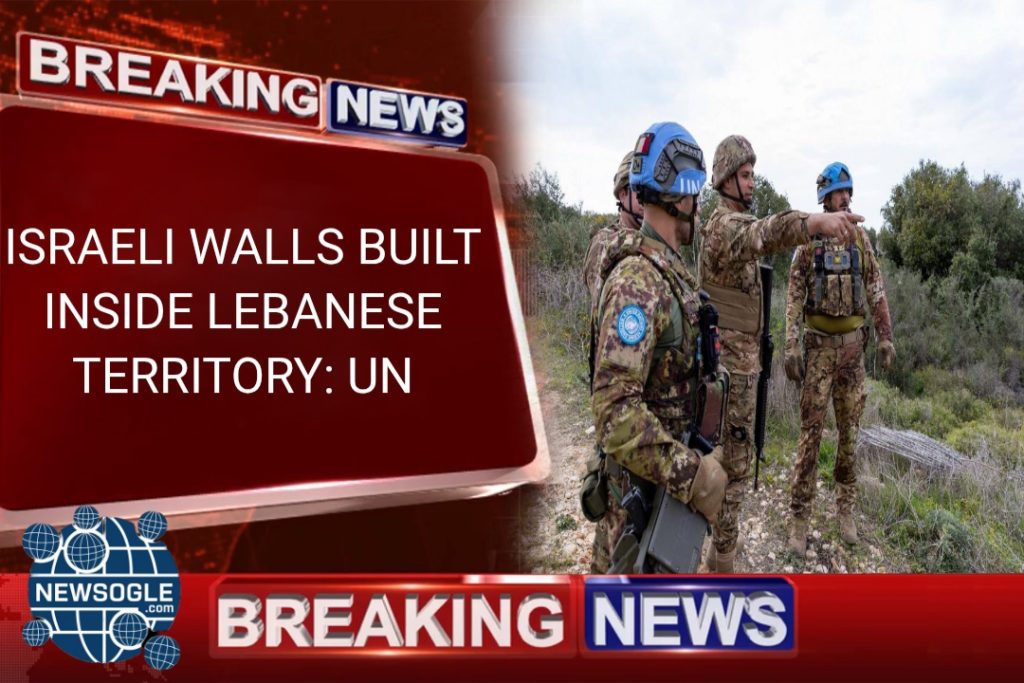
Violation of Resolution 1701: UNIFIL Demands IDF Remove Concrete Barriers Crossing Blue Line
SEO Keywords: UNIFIL report Israel Lebanon, Israeli wall Lebanese territory, Blue Line violation, UN Security Council Resolution 1701, Yaroun border dispute, Hezbollah ceasefire breach, Middle East border tensions.
Israeli Construction Crosses UN-Demarcated Border
The United Nations peacekeeping force in Lebanon (UNIFIL) has issued a strongly worded statement confirming that the Israeli military has constructed concrete walls that extend into Lebanese territory. The controversial construction crosses the Blue Line, the unofficial and non-binding border demarcated by the UN between Lebanon and Israel in 2000.
The statement, released Friday, follows a geospatial survey conducted by UNIFIL peacekeepers in October. They identified a significant breach southwest of Yaroun, a town located in Lebanon’s southern Nabatieh district.
According to UNIFIL, the concrete T-wall constructed by the Israel Defense Forces (IDF) extends across the Blue Line, rendering more than 4,000 square meters (43,055 sq feet) of Lebanese territory inaccessible to the Lebanese population. A second section of the wall, southeast of Yaroun, was also found to extend beyond the demarcation line.
Demand for Immediate Withdrawal
UNIFIL stressed that the Israeli presence and construction north of the Blue Line constitute direct violations of UN Security Council Resolution 1701 and infringe upon Lebanon’s sovereignty and territorial integrity.
“UNIFIL informed the [Israeli army] of our findings and requested that they move the walls,” the statement confirmed. “We again call on the [Israeli military] to respect the Blue Line in its full length and withdraw from all areas north of it.”
Resolution 1701, adopted in 2006, is the bedrock of the fragile peace between Israel and the Lebanese group Hezbollah. It calls for a cessation of hostilities and the establishment of a weapons-free zone south of Lebanon’s Litani River.
IDF Rejects Allegations, Citing Security Reinforcement
In response to the serious allegations, the Israeli military swiftly rejected UNIFIL’s findings, maintaining that the construction remains within Israeli boundaries.
The IDF confirmed to news agencies that the wall is “part of a broader plan whose construction began in 2022.” They justified the construction as a necessary security measure stemming from recent conflict: “Since the start of the war, and as part of lessons learnt from it, the [Israeli military] has been advancing a series of measures, including reinforcing the physical barrier along the northern border.”
Crucially, the Israeli military emphasized its denial, stating: “It should be emphasised that the wall does not cross the Blue Line.” This direct contradiction sets the stage for a diplomatic standoff at the UN.
Escalating Tensions Despite Ceasefire
The revelation comes amidst already heightened tensions along the northern border. Israel has been carrying out near-daily attacks across southern Lebanon since October 2023, which escalated into a full-scale offensive in September 2024. This aggression has continued despite a ceasefire agreement signed in November of last year.
The prolonged Israeli military presence, which includes maintaining outposts in southern Lebanon even after a partial withdrawal in January, is viewed by Beirut and the UN as an ongoing breach of the ceasefire terms.
Lebanese Prime Minister Nawaf Salam, responding to the latest escalation, called for an end to Israel’s military activities, warning that they pose a serious threat to regional stability.
The UNIFIL report confirms international observers’ concerns that military actions along the border are not only violating the spirit of the ceasefire but are now resulting in tangible, unauthorized changes to the territorial status quo, further jeopardizing the fragile peace established by Resolution 1701.

Aleda Kawis is the Professional Journalist and serving in the field since 2012. She keeps extensive experience as investigating journalist and media influencer.





